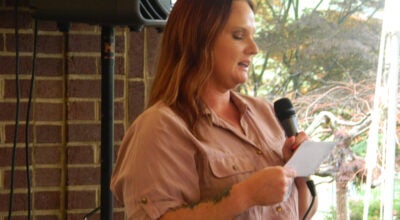Motion: Recuse justice from NC redistricting case
Published 12:00 am Wednesday, November 28, 2012
RALEIGH (AP) — Groups challenging Republican-drawn redistricting maps before the N.C. Supreme Court are pushing for the recusal of a conservative justice who won reelection with the aid of nearly $2 million in political ads paid for by GOP-aligned organizations.
A legal motion filed today says Justice Paul Newby should be recused because the outsized partisan spending on his reelection campaign undermines his impartiality. State judicial races are technically non-partisan, but Newby is a registered Republican whose reelection relied heavily on support from some of the same GOP leaders named as defendants in the redistricting lawsuit.
The North Carolina chapter of the NAACP and other groups have sued top Republican lawmakers over 2011 congressional and state legislative maps, contending they are illegally gerrymandered to favor GOP candidates.
“If justice and fairness are to prevail, the integrity of the court’s justices and the proceedings cannot be influenced by money or have even the appearance of being sold to the highest bidder,” the Rev. William J. Barber, II, president of the state NAACP, said. “The fact that Justice Newby received so much partisan money is troubling … (and) raises serious questions as to whether or not he can rule impartially on the redistricting case.”
First elected to the state’s top court in 2004, Newby was trailing his challenger, Appeals Court Judge Sam J. Irvin IV, in polls taken in the weeks before the Nov. 6 election. That gap narrowed, however, as a political action committee named the North Carolina Judicial Coalition spent more than $1.9 million on television spots supporting Newby and attacking Ervin in the final weeks of the race.
According to the motion, about $1.2 million of that money came from the Republican State Leadership Committee, a Washington-based group described as providing direct technical assistance to the North Carolina Republicans who drafted the legislative maps at issue.
On election night, the motion says Newby spoke at a Republican victory rally in Raleigh, sharing the stage with GOP state House Speaker Thom Tillis and Senate leader Phil Berger. Both Berger and Tillis are named as defendants in the lawsuit. Newby also appeared earlier at GOP campaign rallies with Republican candidates who stood to benefit from the new electoral maps.
The motion cites several state and federal court decisions where cases were overturned after it was shown judges should have recused themselves for partisan political reasons. An example is a 2009 case where the U.S. Supreme Court ruled the owner of a West Virginia coal company donated $2.5 million to a political action committee that helped elect a state judge who later made key rulings in favor in favor of his political supporter’s corporation.
Eddie Speas, one of the lawyers for the plaintiffs in the redistricting case, said there is no clear precedent in state law dictating if Newby gets to decide whether to recuse himself or whether other justices on the high court can vote on his recusal. It is also not clear when there might be a ruling on the issue, Speas said.




